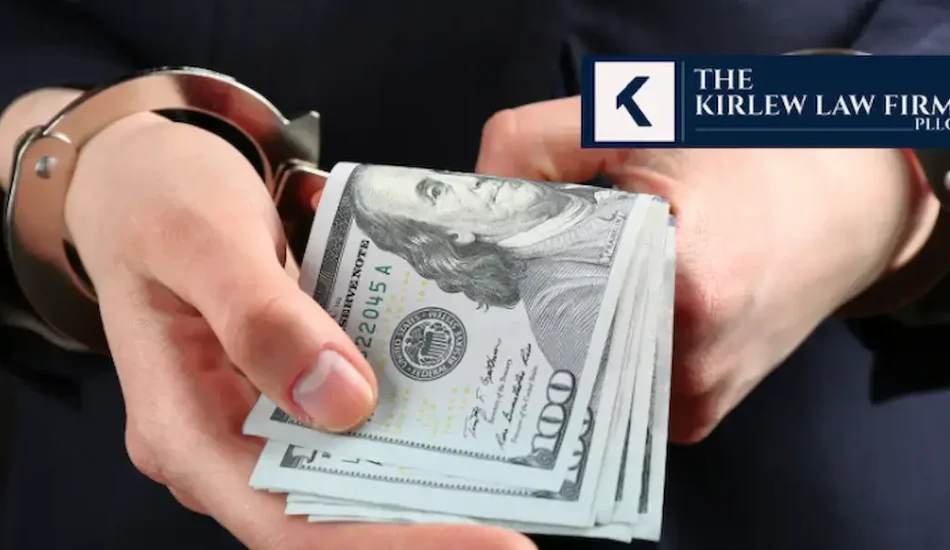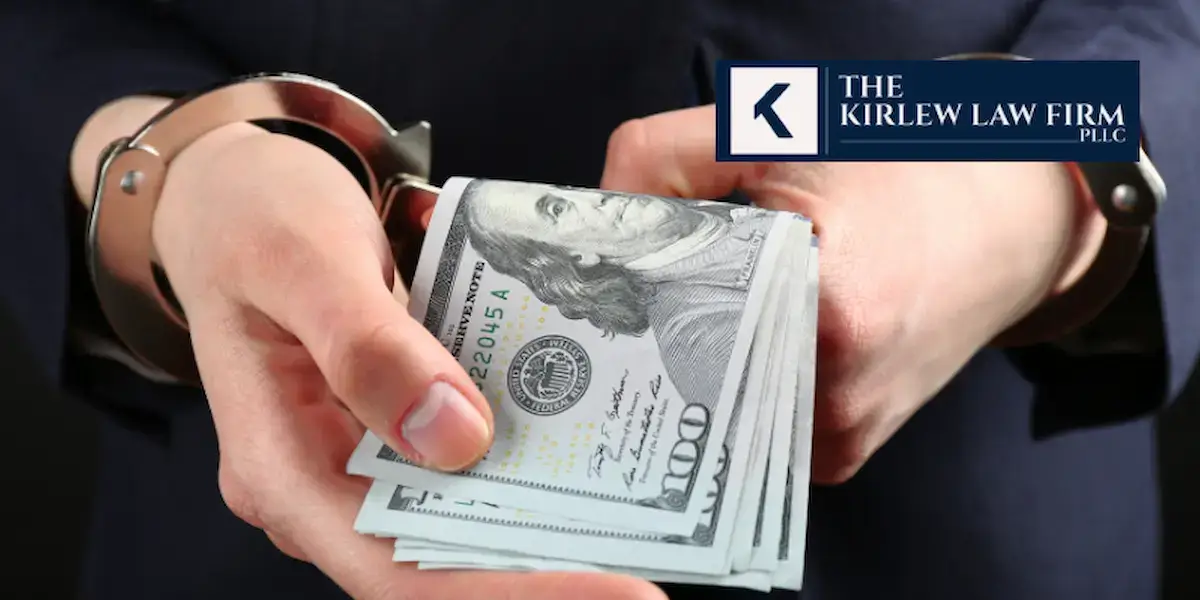|
|
Last
Modified on
Feb 06, 2025
Even though white collar crimes are usually non-violent and are motivated by financial gains, Florida law still takes these crimes seriously, and the penalties can be severe. Understanding the intricacies of Florida white collar crime laws and penalties is essential for individuals and businesses within the Sunshine State.
Florida’s lawmakers enacted the White Collar Crime Victim Protection Act to combat the financial exploitation of the state’s citizens, particularly the especially vulnerable, like seniors. The Act outlines the types of white collar offenses it addresses, such as those that involve deception, conspiracies to deprive individuals of their assets, and intentional acts or plots to defraud.
What Crimes Are Included in the Act?
Embezzlement
Embezzlement is the misappropriation of funds or property by someone who was entrusted with it. This could include employees stealing money or assets from their employers, high-level executives misusing company funds, or government officials misappropriating public funds for their own benefit.
Computer-Related Crimes
Computer-related crimes are also known as cybercrimes and involve the use of the internet to carry out white collar crimes. This could include hacking, data breaches, phishing, identity theft, online auction fraud, investment scams, embezzlement, money laundering, and more.
Fraud
Fraud is one of the most common types of white collar crimes and involves intentional deception for unfair or unlawful gain. This could include insurance, healthcare, securities, mortgage, or credit card fraud, and identity theft.
Forgery and Counterfeiting
Forgery is creating a fake document or falsifying a signature with the intent to defraud and is often committed by creating a fake will or deed or clearing a check or other legal document. Counterfeiting is creating fake versions of valuables like money, designer goods, or medications.
Bribery and Misuse of Public Office
Bribery includes offering, giving, receiving, or soliciting money or gifts in an attempt to influence an official’s actions. This goes with misuse of public office, as bribery is often done to use an official’s position for personal gain.
Insider Trading
Insider trading is when someone buys or sells a publicly traded security, such as a stock or bond, based on non-public information. The primary motivation is financial gain.

Penalties for White Collar Crimes in Florida
The penalties for white collar crimes in Florida will depend on the alleged crime and the circumstances of the case. The state’s law classifies these crimes as either misdemeanors or felonies.
- Second-degree misdemeanor: Up to 60 days in jail and a $500 fine
- First-degree misdemeanor: Up to one year in jail and a $1,000 fine
- Third-degree felony: Up to five years in prison and a $5,000 fine
- Second-degree felony: Up to 15 years in prison and a $10,000 fine
- First-degree felony: Up to 30 years in prison and a $10,000 fine
In addition to incarceration and fines, other penalties can include court-ordered restitution, probation, a criminal record, impacts on future employment opportunities, and reputational damage.
The White Collar Crime Victim Protection Act also includes a provision for “aggravated white collar crime,” which is when someone commits two or more white collar crimes with similar intents and circumstances. This can mean harsher penalties, especially if the crime impacted a large number of victims who suffered significant financial losses.
Penalties for aggravated white collar crime include:
- First-degree felony charges, which can include up to life imprisonment for severe cases
- Full restitution to each victim of the crime
- Liability for all court costs
- Probation for up to 10 years or until full restitution is made
Additional Protections for Elderly Persons and Disabled Adults
The Act specifically includes the abuse, neglect, and exploitation of elderly persons and disabled adults as a form of white collar crime and highlights how these populations are extra vulnerable for white collar crimes.
Are You Facing White Collar Charges?
For anyone who may be facing white collar crime charges, you need a skilled white collar defense attorney. These charges are serious and can come with potentially severe consequences. At The Kirlew Law Firm, we understand the complex laws and procedures of white collar crimes and can work to protect your rights, reputation, and future.
FAQs About White Collar Crime Law in Florida
Q: What Is Considered White-Collar Crime in Florida?
A: White collar crimes in Florida are usually non-violent financial crimes. These crimes usually involve tricking or misleading others for personal monetary gain. The most common examples are financial, insurance, and healthcare fraud; embezzlement; larceny, forgery, or counterfeiting; computer crimes like hacking or data theft; bribery and public corruption; money laundering; and identity theft.
Q: How Long Do You Go to Jail for White Collar Crimes?
A: The length of jail time you may face for white collar crimes depends on what crime you have been charged with, the amount of money involved, how many victims there were, your criminal history, and the judge’s discretion. If the crime is less serious, it will fall under a misdemeanor, and you could face less than a year in prison. But if the crime is more serious and results in felony charges, you could face a lengthy sentence.
Q: What Is the Most Common Punishment for White Collar Crime?
A: The most common punishments for white collar crimes include fines and restitution. The fines can be enormous, and restitution is meant to pay back any of the victims for their financial losses. Other punishments for white collar crimes can include imprisonment, probation, community service, and asset forfeiture.
Q: How Can a White Collar Crime Lawyer Help Me?
A: A white collar crime lawyer can explain the charges, protect your rights, investigate your case, negotiate with prosecutors, and defend you in court. A lawyer can be an invaluable asset when you are facing white collar charges, and retaining a knowledgeable lawyer can make a difference in the outcome of your case.
Reach Out to an Experienced White Collar Defense Attorney
We understand that facing allegations of white collar crimes can be a daunting experience given the complexities of these cases, coupled with the potential for severe penalties, and require the support of a skilled and experienced attorney. Contact The Kirlew Law Firm today for a free consultation.





